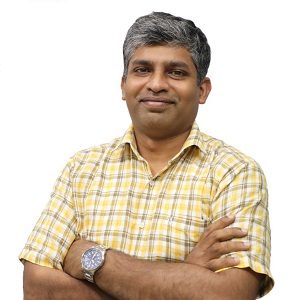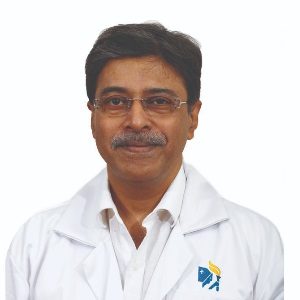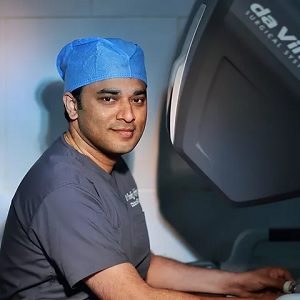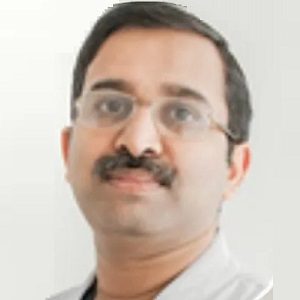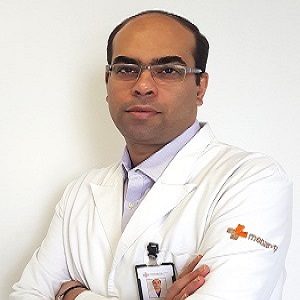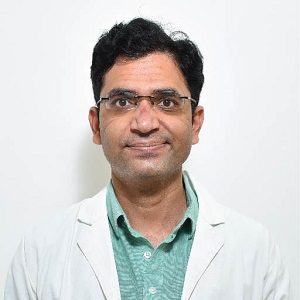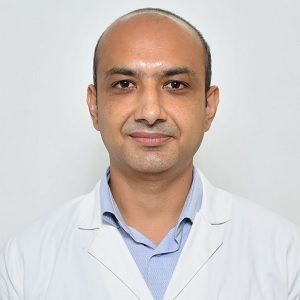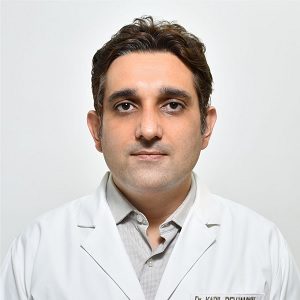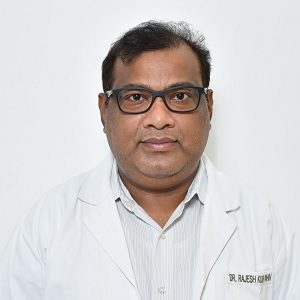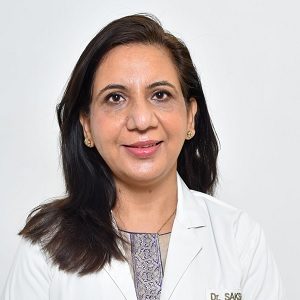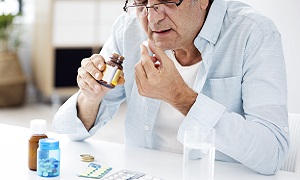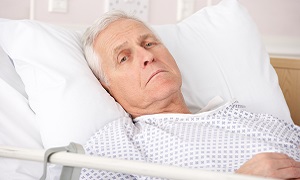Best Doctors in India for Sigmoidoscopy
- Liver Transplant Surgeon and HPB Surgeon, Chennai, India
- Over 15 years’ experience
Profile Highlights:
- Dr. Selvakumar Naganathan is one of the best liver transplant surgeons in India with nearly 15 years of experience.
- He has carried out more than 2000 procedures, including 300 donor & 500 recipient hepatectomies, cadaver transplantations, retrieval of cadaver livers, and live donor liver transplants.
- He also established many liver transplantation centers across India & other countries.
- General Surgeon and Surgical Gastroenterologist, Chennai, India
- Over 27 years’ experience
Profile Highlights:
- Dr. Raghunath K J is a well-known name in the field of general surgery with an experience of more than 27 years.
- He went under training in advanced Laparoscopic surgery from Canada and France.
- Dr. Raghunath pioneers many prestigious projects in the UK.
- Dr. Raghunath has a specialized interest in Gall Bladder Stone treatment, Hernia, GI Cancer Surgery, Laparoscopic Sleeve Resection, Endoscopic Surgery, etc.
- Colorectal Surgeon and Robotic Surgeon, Chennai, India
- Over 26 years’ experience
Profile Highlights:
- Dr. Venkatesh Munikrishnan is one of the best Gastroenterologists and Colorectal Surgeons in Chennai, having 21 years of experience in managing disorders that need surgical treatment.
- Dr. Munikrishnan specializes in surgical oncology, endoscopy, Gastritis Treatment, etc.
- He is also active in research; one of his research on CT Colonography fetched a grant from Bracco, Milan, Italy.
- GI Surgeon and Liver Transplant Surgeon, Gurugram, India
- Over 20 years’ experience
Profile Highlights:
- Dr. Amit Nath Rastogi is a pioneer in the field of liver transplant surgery. He completed his fellowship in liver transplant surgery at Sir Gangaram hospital while being a part of the largest liver transplant program in the country.
- Furthermore, he received his training in robotic liver surgery from IRCAD -Strasbourg, France, and advanced robotic HPB training from Grosseto.
- Liver Transplant Surgeon, Gurugram, India
- Over 10 years’ experience
Profile Highlights:
- Dr. Prashant Vilas Bhangui is one of the highly trained liver transplant specialists who received his training in Surgical Gastroenterology and Liver Transplantation.
- He also holds a European Inter-University Diploma in Hepato-Biliary-Pancreatic Cancers.
- Dr. Prashant is further interested to work in certain fields which include hepatocellular carcinoma, colorectal liver metastases, and living donor liver transplantation. Besides this, he has also published several journals on these subjects.
- Gastroenterologist, Gurugram, India
- Over 7 years’ experience
Profile Highlights:
- Dr. Abhinandan Mishra is one of the young Gastroenterology doctors in Gurugram who is particularly interested in inflammatory bowel disease treatment.
- Dr. Abhinandan Mishra offers Endoscopic Retrograde Cholangiopancreatography, Ascites tap, Endoscopy, Peroral Endoscopic Myotomy, Capsule Endoscopy, Esophageal Manometry, Magnetic Resonance Cholangiopancreatography, etc.
- Gastroenterologist, Gurugram, India
- Over 18 years’ experience
Profile Highlights:
- Dr. Atul Sharma is a renowned Gastroenterology practitioner in Gurugram and is particularly interested in Third Space Endoscopy and Per Oral Endoscopic Myotomy (POEM).
- He presented several papers on Manometry, Luminal gastroenterology, and interventional Gastroenterology during training in Advanced Interventional GI Endoscopy.
- Gastroenterologist, Gurugram, India
- Over 15 years’ experience
Profile Highlights:
- Dr. Kapil Jamwal is a renowned GI practitioner in Gurugram with an extensive experience in digestive and liver disease.
- The specialist offers treatment for Hepatitis B, Jaundice, Hepatitis C, Inflammatory Bowel Syndrome, Acute Pancreatitis, Liver Diseases, and Irritable Bowel Syndrome.
- Gastroenterologist, Gurugram, India
- Over 18 years’ experience
Profile Highlights:
- Dr. Rajesh Padhan is a renowned Gastroenterologist in Gurugram with an extensive experience of more than 18 years in the field.
- He is skilled in carrying out various endoscopy procedures such as Colonoscopy, Endoscopic retrograde cholangiopancreatography, Endoscopic ultrasound, upper GI endoscopy, etc.
- Gastroenterologist, Hepatologist, Gurugram, India
- Over 25 years’ experience
Profile Highlights:
- Dr. Sakshi Karkra is one of the best Pediatric gastroenterologists in Gurugram.
- She has special interest/ expertise in Colonoscopy, Upper GI Endoscopy, Capsule endoscopy, Enteroscopy, Endoscopic variceal ligation, Foreign body removal, Stricture & achalasia dilatation, Polypectomy, Anal manometry, Liver Biopsy, and Colonic manometry.
Best Hospitals in India for Sigmoidoscopy
Sigmoidoscopy
Sigmoidoscopy is a test where your doctor examines the rectum and lower part of the colon. The colon is your large intestine and its lower part is known as the sigmoid colon. The sigmoid colon ends in your rectum, where the waste is collected before it leaves your body when you are having a bowel movement.
Sigmoidoscopy, which is also termed as flexible sigmoidoscopy, can help your doctor to look for ulcers, cancer, polyps or abnormal cells. In this procedure, typically tissues are taken as samples for checking for any abnormal changes in the cells.
Purpose
Sigmoidoscopy can help your doctor investigate possible causes of abdominal pain, changes in bowel habits, rectal bleeding, chronic diarrhea or any other problems related to the intestine.
If you are over 50 years of age, it puts you at average risk for colon cancer, which is why your doctor may recommend a flexible sigmoidoscopy exam every five years to screen for colon cancer.
Though sigmoidoscopy helps in screening for colon cancer screening, there are other options as well, which can allow your doctor to view the whole colon, such as colonoscopy.
Occasionally, sigmoidoscopy is preferred over colonoscopy as it takes lesser time, and doesn’t require an anesthetic. There are also lower risks.
Preparation
Before going through a sigmoidoscopy exam, it is important to empty your colon. If there is any residue in your colon, it can obscure the view of your colon and rectum during the procedure.
To empty your colon, it is important to carefully follow your doctor’s instructions. Your doctor might ask you not to consume any food the day before you undergo the exam. Instead, you can consume plain water, carbonated beverages, broth as well as tea and coffee without any milk or cream. The doctor may also ask you not to eat or drink anything after midnight the night before your exam.
Your doctor may ask you to take a laxative, which will be either in pill or liquid form.
You will also need to use an over-the-counter enema kit, typically a few hours before the exam, for emptying your colon. You might also be asked to take two enemas.
If you take medications or supplements, remind your doctor about them at least a week before the exam. You may need to temporarily stop the medications or adjust the dosages for some time.
Procedure
You’ll need to wear a gown and begin the exam lying on your left side on the exam table. Then you need to draw your knees toward your abdomen. Then the sigmoidoscope, which is a thin and flexible tube, will be inserted into your rectum. The tube has a light as well as a very small camera on the end, which helps images to be transmitted onto a monitor for the doctor to see. The tube also inflates your colon with some air, making it easier for your doctor to examine.
Please note that when the scope is moved or air is introduced, you might experience abdominal cramping or the urge to move your bowels.
This exam should take around 15 minutes. If biopsies are taken, it may require slightly more time. Usually, sedation and pain medications aren’t required. If a polyp is found, your doctor might recommend a full colonoscopy to examine the entire colon, as there might be other polyps present further up in the colon.
After the procedure
After the exam, you should be able to return to your usual diet and activities. However, you might experience mild discomfort after the exam. You might feel bloated or pass gas for some hours as the air is cleared from your colon. Walking should help relieve the discomfort.
You might also notice a little blood with your first bowel movement after the exam, for which there is no reason to worry. You can consult your doctor if you continue to pass blood or blood clots or if you experience persistent abdominal pain or a fever of 100 F or higher.
If your results are negative, that means your doctor hasn’t found any abnormalities in your colon. If you’re above fifty years of age, then you may be at average risk of colon cancer. So your doctors can recommend the exam again after five years.
If your results are positive that means your doctor found polyps or abnormal tissues in your colon. You might require additional testing, such as colonoscopy, depending on the findings. The abnormalities will be examined more thoroughly, biopsied or removed.

